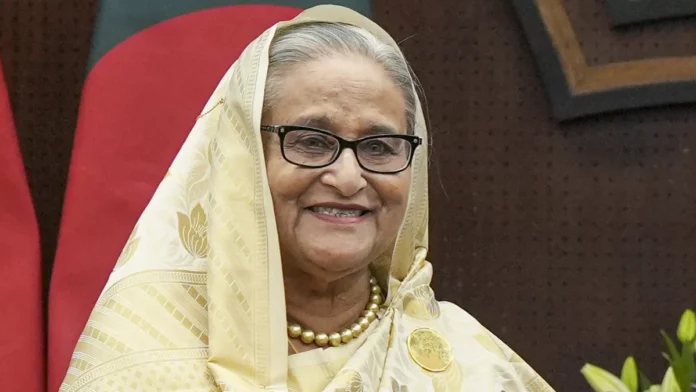Dhaka: The trial of former Bangladeshi Prime Minister Sheikh Hasina before the International Crimes Tribunal (ICT) has concluded, with the three-member bench, led by Justice Md Golam Mortuza Majumder, scheduling the announcement of its verdict for November 13. Hasina faces serious allegations of crimes against humanity, specifically the torture of multiple individuals and orchestrating enforced disappearances while her Awami League government was in power.
The former premier fled Bangladesh in August 2024 following a major student-led uprising that led to the collapse of her administration and the installation of an interim government headed by Nobel laureate Muhammad Yunus.
Hasina’s state-appointed lawyer, Md Amir Hossain, contested the notion that she fled to evade the judicial process. Speaking to Dhaka Tribune, Hossain insisted the former prime minister was forced to depart by helicopter, quoting her as saying, “She did not want to leave this country… If necessary, give me the soil here, kill me, still I will not go.” The lawyer also challenged the fundamental basis of the prosecution’s case, arguing that for an act to constitute a crime against humanity, there must be an intent to “annihilate a community, nation, or group,” a condition he asserted does not apply in this matter. He emphasized the tribunal’s responsibility to deliver justice.
The cases against Hasina and co-accused stem from alleged crimes committed during the anti-discrimination student movement in July–August 2024. Thursday marked the final day for the defence arguments in these cases. One charge involves 17 defendants, including Hasina and her defence adviser, retired Major General Tariq Ahmed Siddique, accused of abducting opposition activists and detaining them at a secret Rapid Action Battalion cell where torture allegedly took place. A second case charges Hasina, Siddique, and 11 others—including five former Directorate General of Forces Intelligence (DGFI) directors general—with detaining and torturing victims at the DGFI’s Joint Interrogation Cell, encompassing five specific charges of crimes against humanity.
Earlier this month, on October 8, the ICT issued arrest warrants for 30 individuals, including Hasina, in two separate cases concerning enforced disappearances during her tenure. Among the other notable figures named were former Home Minister Asaduzzaman Khan, Tariq Ahmed Siddique, and former police chief Benzir Ahmed, with twenty-seven of the remaining accused being retired or serving military officers. The tribunal had ordered the accused to be produced in court by October 22, the same day the ICT ordered 15 serving army officers accused of orchestrating disappearances during Hasina’s administration to be sent to jail.

